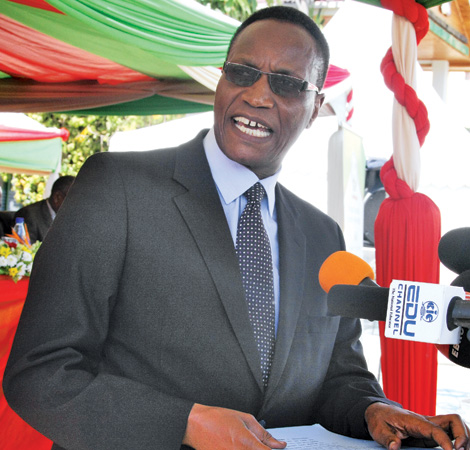×
The Standard e-Paper
Join Thousands Daily
 |
| Education CS Prof Jacob Kaimenyi when he released the 2013 KCSE results. [PHOTO: STANDARD/FILE] |
By AUGUSTINE ODUOR
NAIROBI, KENYA: The use of 'Sheng' language may not be the main reason last year’s form four candidates performed poorly in English subject after all.